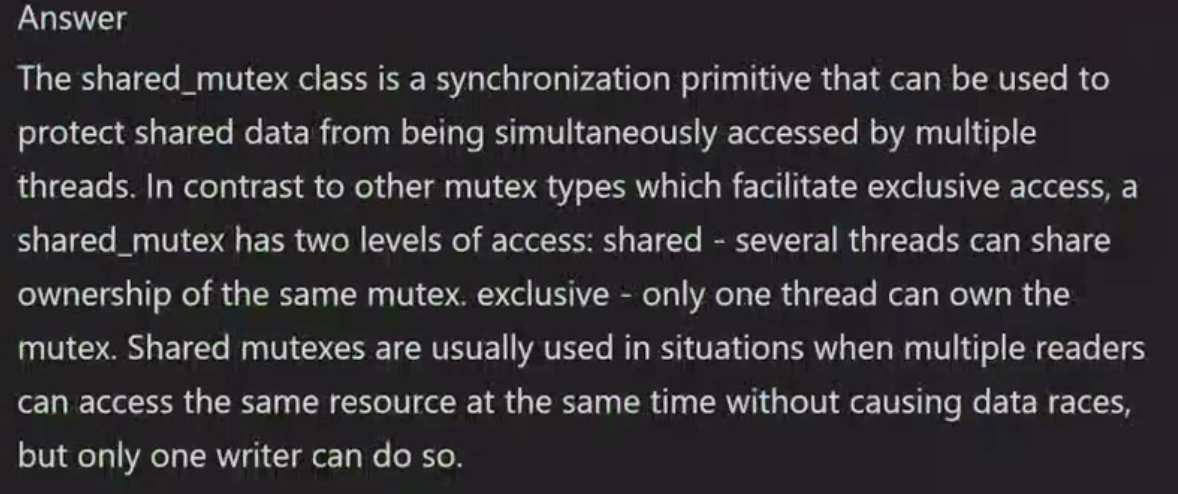Question
this is the third time i post this question, please answer the question and add to this code. the other answers( that i got on
this is the third time i post this question, please answer the question and add to this code.
the other answers( that i got on chegg) is not correct since it holds a different code. thank you!
### Implementation
Implement the readers writers solution we discussed in class. Use **main.cpp** in the folder __readersWriters__ as a start. Do not **remove** any code just **add** synchronization code to fix the access problem. As you might have guessed you need to use ``` std::shared_mutex ``` here.
readerswriters.cpp:
// readersWriters.cpp : This file contains the 'main' function. Program execution begins and ends there. //
#include #include #include #include #include #include #include
std::random_device e; std::uniform_int_distribution dist(1, 9); std::vector v;
//Size of the vector v constexpr auto DATA_SIZE = 100; constexpr auto NUM_TRIALS = 10;
/* Readers writer setup. The common data is the * vector of integers v. The writers write a random * value from 1 to 9 followed by its negative such * that the total sum is 0. for example * [2,-2,2,-2,2,-2....] * The readers check that the sum in the vector is zero * if not it will print the sum (which means data is corrupted) */
/* You MUST NOT remove any of the code below. ADD to it sync * primites so that it works. Basically using c++ to implement the * solution we saw in class (it is in the lecture notes) */
class Reader { public:
void operator() () { int sum = 0;
for (auto x : v) { sum += x; std::this_thread::sleep_for(std::chrono::milliseconds(10)); }
if (sum != 0) std::cout
class Writer {
public: Writer() { } void operator() () { int value = dist(e);
for (auto& x : v) { x = value; value = -value; std::this_thread::sleep_for(std::chrono::milliseconds(10)); }
} };
int main() { int value = 1; for (int i = 0; i
}  image: answer hint
image: answer hint
Step by Step Solution
There are 3 Steps involved in it
Step: 1

Get Instant Access to Expert-Tailored Solutions
See step-by-step solutions with expert insights and AI powered tools for academic success
Step: 2

Step: 3

Ace Your Homework with AI
Get the answers you need in no time with our AI-driven, step-by-step assistance
Get Started


